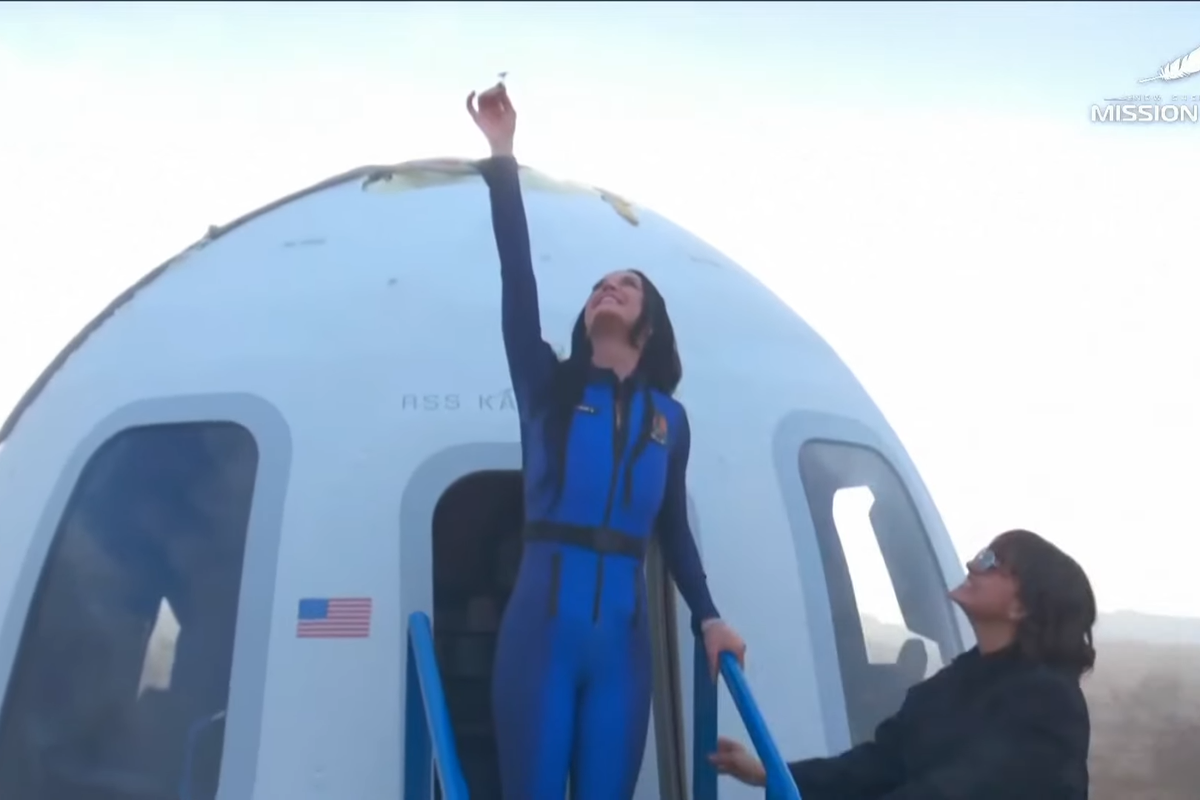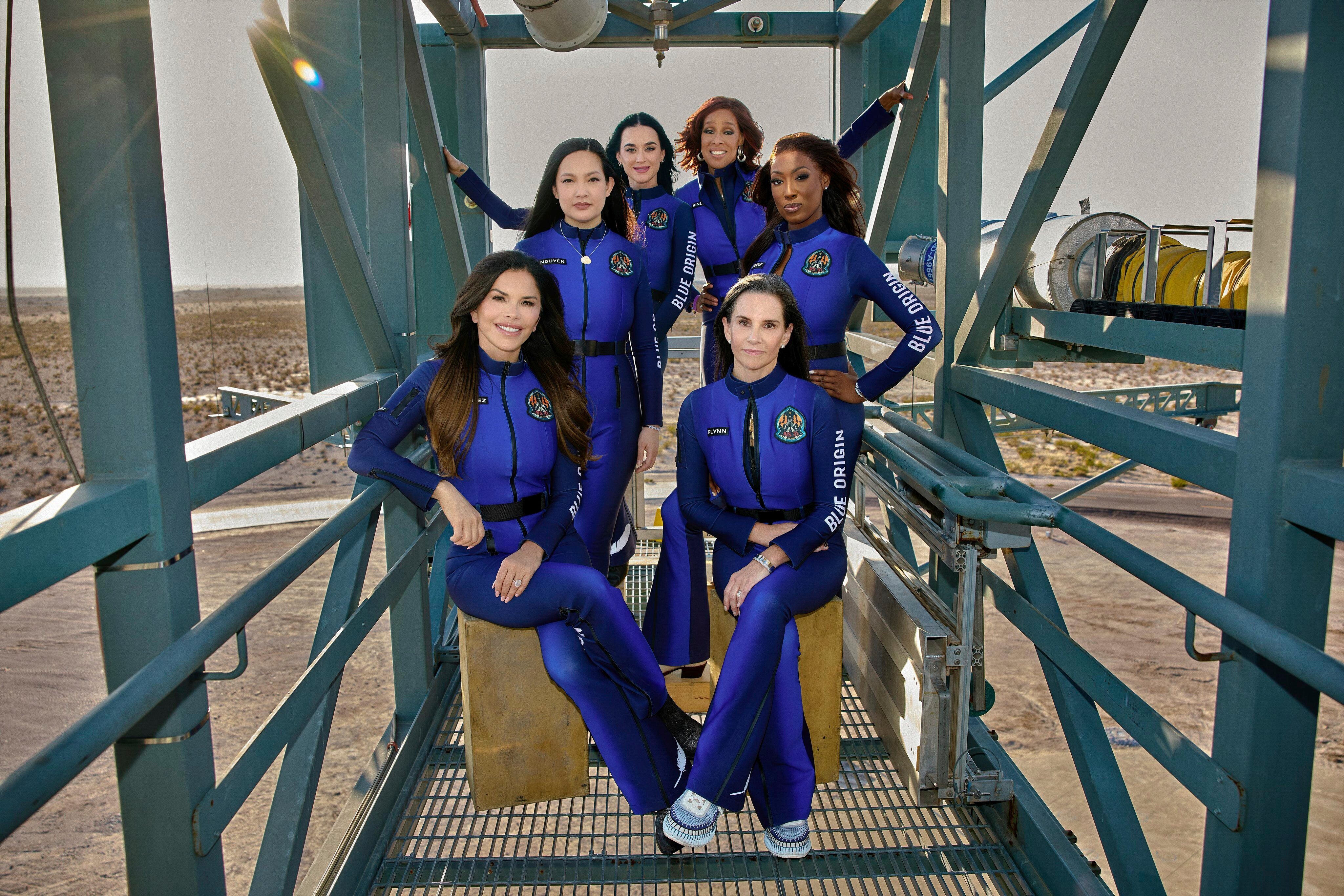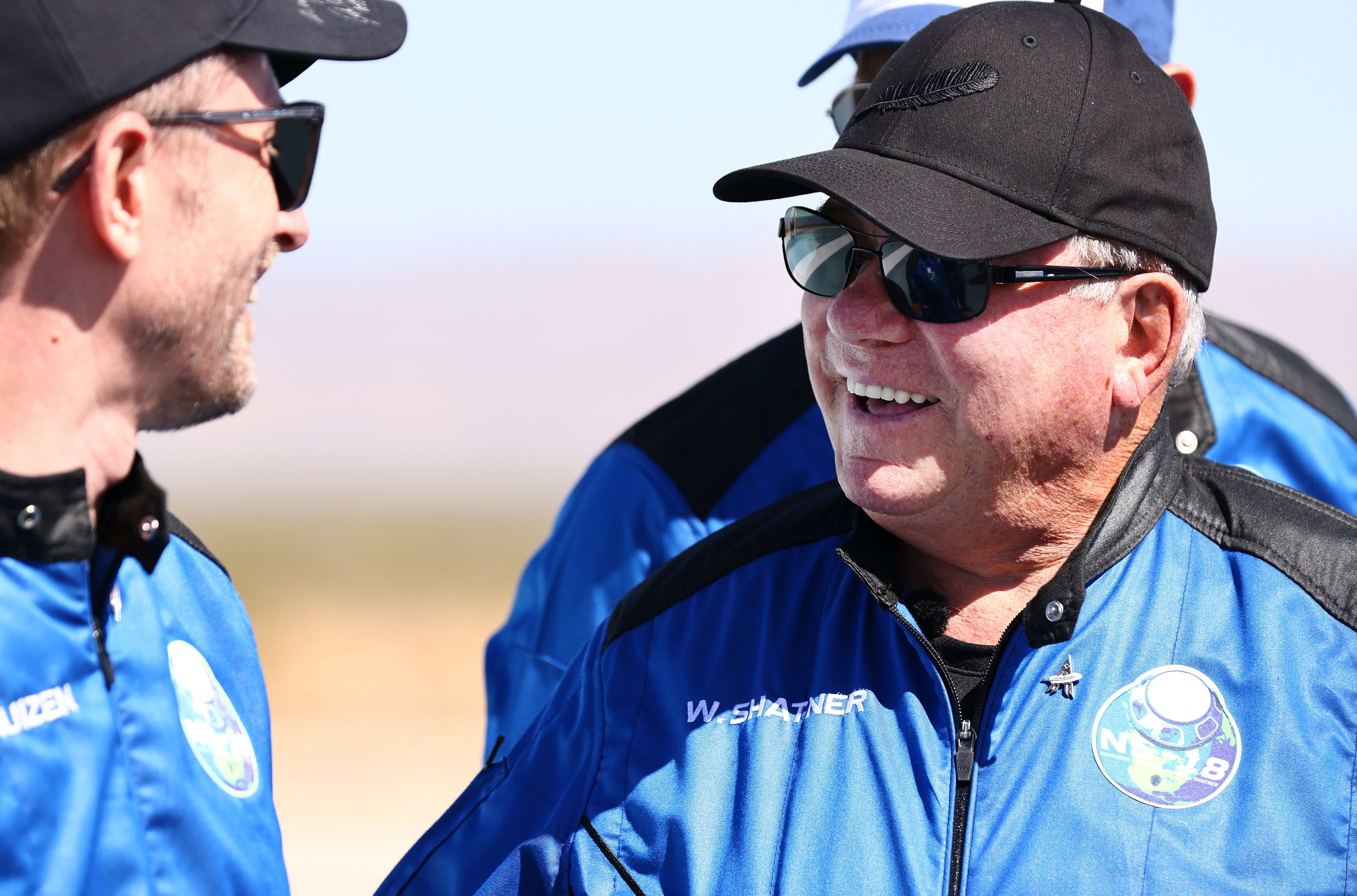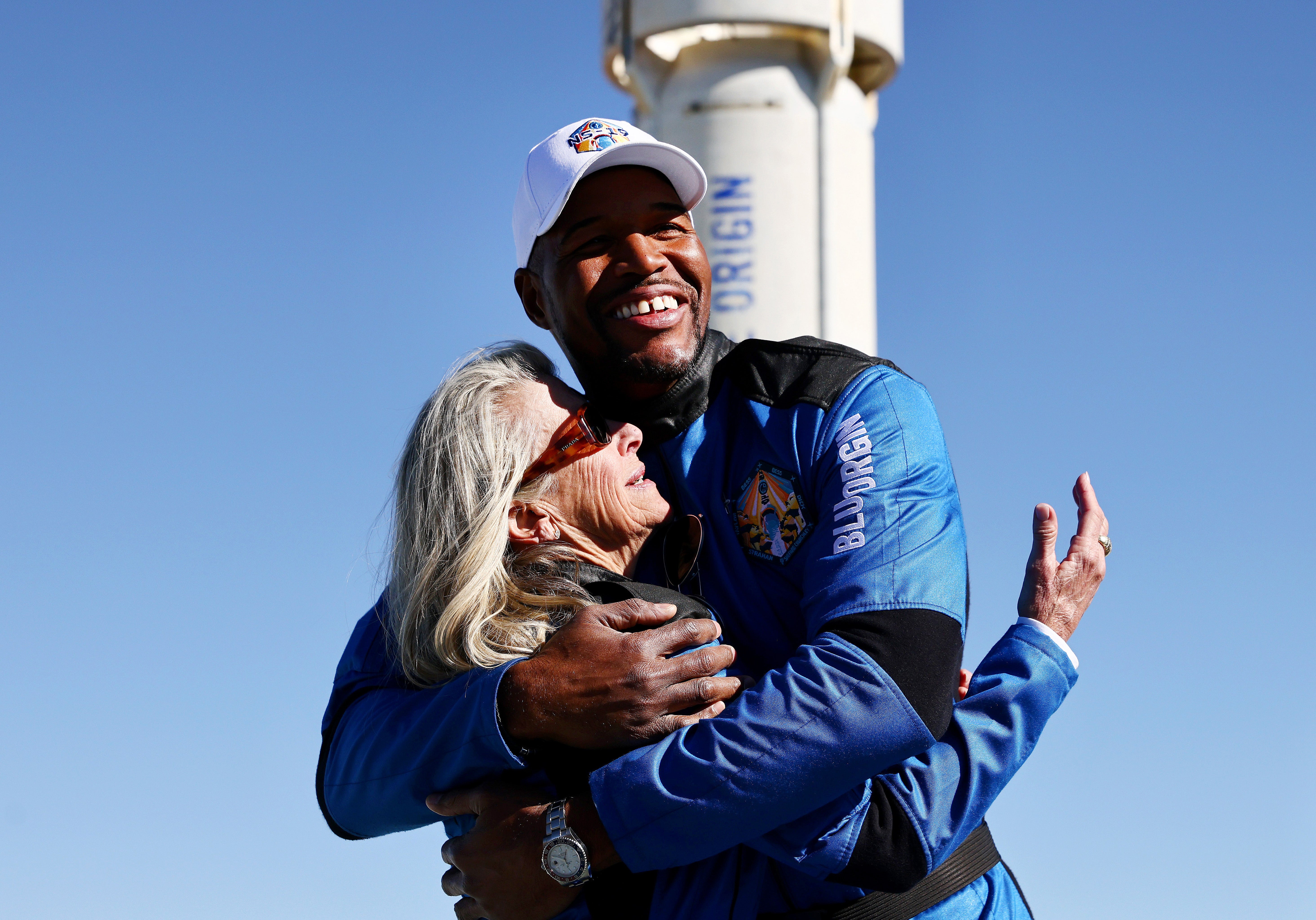Blue Origin flight live updates: Katy Perry and star-studded crew return from brief space launch
The first all-female trip to space in more than six decades launched from West Texas on Monday morning
Katy Perry and five other women successfully launched into space on Monday on the first all-female mission in more than six decades.
The crew lifted off on board an autonomous rocket made by Blue Origin, the private space firm owned by Amazon founder Jeff Bezos.
“I don’t really have words for it,” the billionaire’s fiancée Lauren Sanchez said in an interview following the flight. “Earth looked just so quiet.”
“It is the highest high and it is surrender to the unknown,” said Perry. “I couldn’t recommend this experience more.”
Perry and Sanchez were joined by CBS News host Gayle King, former NASA rocket scientist Aisha Bowe, civil rights activist Amanda Nguyen, and film producer Kerianne Flynn.
The only other all-female crew in 64 years of human spaceflight took place in 1963.
The rocket lifted off as part of Blue Origin mission NS-31 at 8:30 a.m. local time. The craft flew through space for around four minutes before floating back down to Earth, with the entire journey taking a little over 10 minutes.
When in space, Perry sang the song “What a Wonderful World.”
“It was a feeling of joy. It was a feeling of gratefulness,” Sanchez added.
The NS-31 crew saw a pink moon. Here's what to know

A pink moon dazzled skywatchers over the weekend.
The fourth full moon of the year, it is named seasonal pink wildflowers known as creeping phlox, according to NASA.
The plant is native to the eastern U.S. and is one of the earliest widespread flowers of spring.
This pink moon is also a micromoon. A micromoon will appear smaller and dimmer than usual, instead of brighter and fuller.
Why was Oprah Winfrey wearing yellow for the launch?
American media mogul Oprah Winfrey donned yellow for her best friend’s rocket launch because CBS host Gayle King’s identifying call sign is “Sunshine.”
When was the last all-female spaceflight?
Monday’s Blue Origin launch was the nation’s first all-female spaceflight.
The only other all-female crew was in 1963 when Soviet cosmonaut Valentina Tereshkova launched by herself, becoming the first woman in space.
Tereshkova spent three days off Earth.
Aisha Bowe recalls looking down at Earth from space: 'There's no boundaries'
Former rocket scientist Aisha Bowe said everyone “looked at each other” when they got out of their seats in space.
“There’s no boundaries. There’s no border. There’s just Earth,” she recalled. “It’s incredible.”
Activist Amanda Nguyen carried scientific research projects onto the flight
Katy Perry reveals reason she brought a daisy on Blue Origin space mission

Katy Perry reveals reason she brought a daisy on Blue Origin space mission
NS-31 marks commercial spaceflight 11 for Blue Origin

The all-female NS-31 mission was the 11th human spaceflight for the Washington state-based aerospace company Blue Origin.
Blue Origin has declined to say how much the flight cost or who paid for what.
With reporting from The Associated Press
This wasn't the first star-studded Blue Origin launch

This wasn't the first star-studded Blue Origin launch.
“Star Trek” actor William Shatner went to space in October 2021 at age 90.
“It was among the strongest feelings of grief I have ever encountered,” Shatner wrote later.

ABC host Michael Strahan also launched later that year.
Strahan was joined by Laura Shepard Churchley, the eldest daughter of astronaut Alan Shepard, for whom the rocket is named.
Scientists worry about environmental impact of commercial spaceflight industry

"It's not about singing my songs. It's about a collective energy in there. It's about us. It's about making space for future women and taking up space and belonging,” popstar Katy Perry said after the Blue Origin launch on Monday.
“And it's about this wonderful world that we see right out there and appreciating it. This is all for the benefit of Earth,” she said.
But, scientists worry about the environmental impact of the burgeoning commercial spaceflight industry, and its potential to harm rapidly warming planet.
"Even if the suborbital tourism market is launching at a fraction of the number of launches compared to the rest of the [tourism] industry, each of their flights has a much higher contribution, and that could be a problem," Dallas Kasaboski, principal analyst at the space consultancy Northern Sky Research, told Space.com in 2021. He was speaking about potential pollution from the flights.
Join our commenting forum
Join thought-provoking conversations, follow other Independent readers and see their replies
Comments